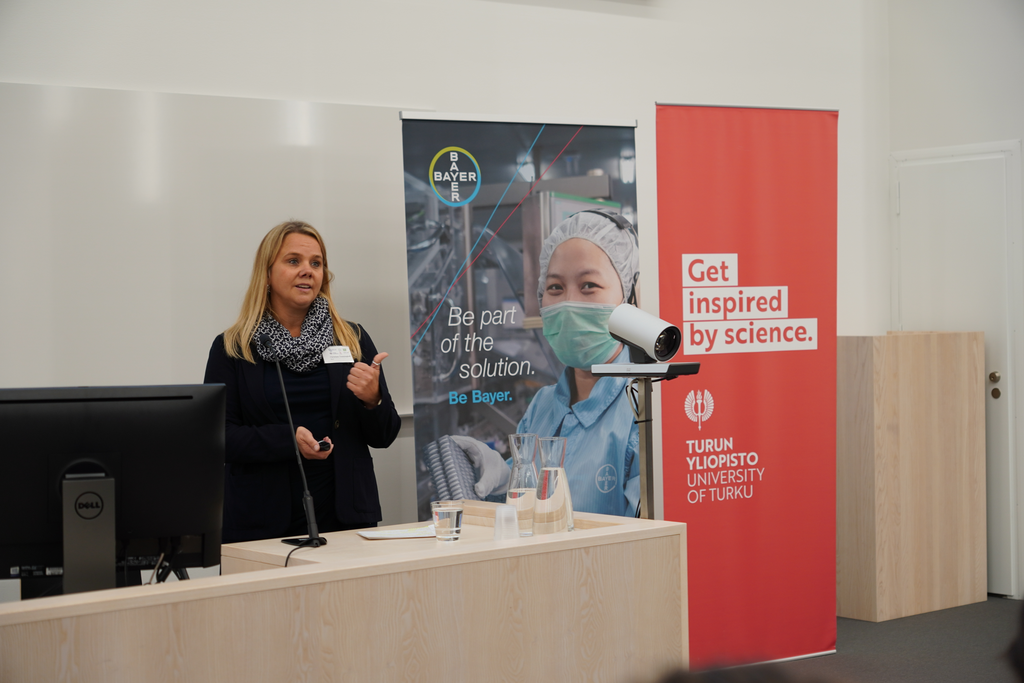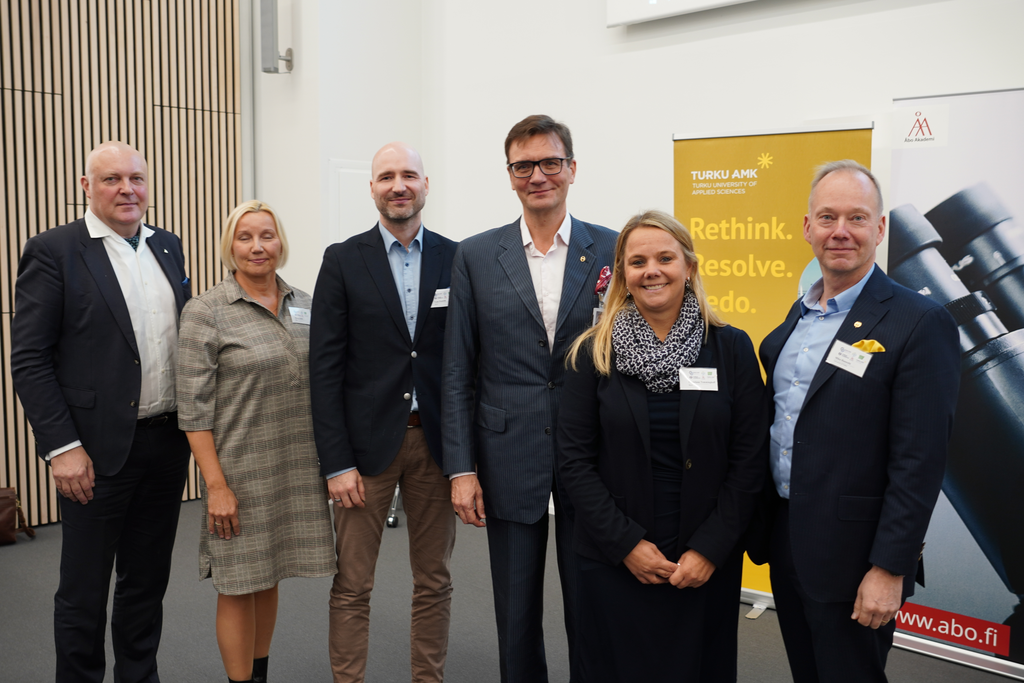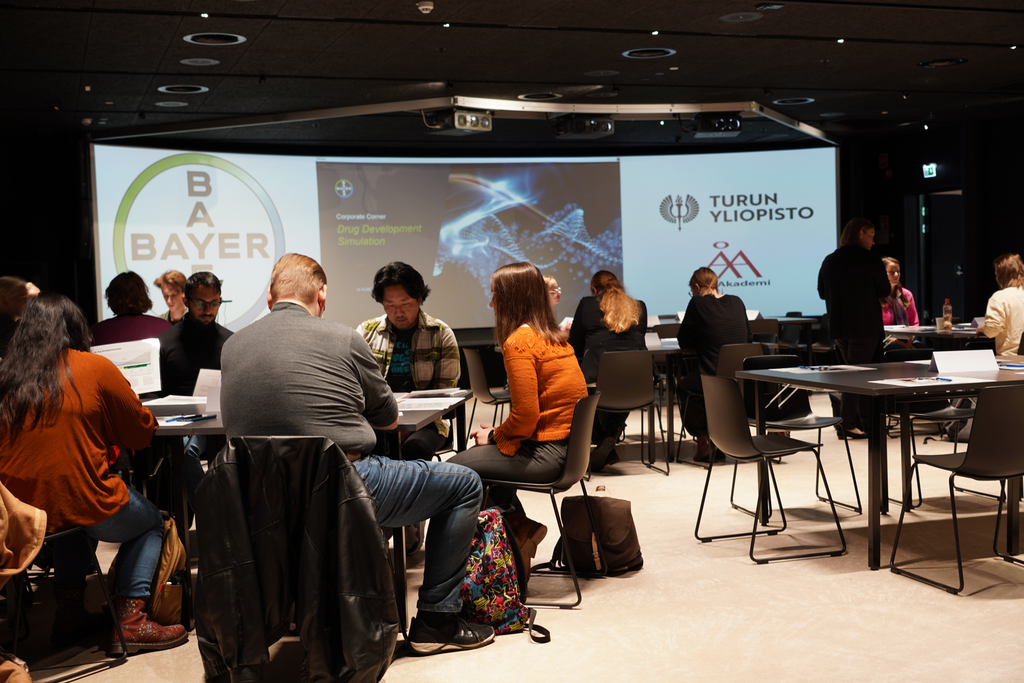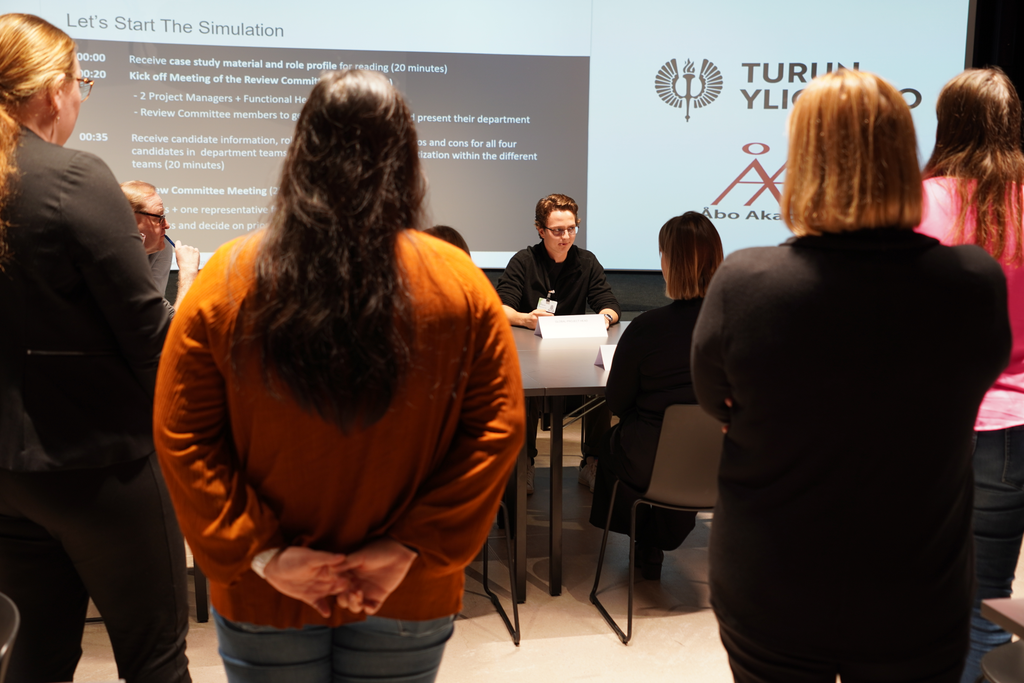14.10.2022
Turku universities and Bayer explored future innovations in health and medical research at Corporate Corner
The higher education institutions of the Turku region together with Bayer Finland organised a Corporate Corner event on 10 October 2022. The event set out to discover new collaboration opportunities in the fields of pharmaceutical research, product development, and manufacturing technology.
Åbo Akademi University, The University of Turku and Turku University of Applied Sciences have all signed a strategic partnership agreement with the pharmaceutical company Bayer.
Together with Bayer, the higher education institutions organised the Corporate Corner event aimed at researchers and students in Medisiina D and Visitor and Innovation Centre Joki on Monday, 10 October 2022.
Corporate Corner included discussion on themes related to for example pharmaceutical research, pharmaceutical manufacturing technology, and foreign expertise. In the event, students and researchers also had an opportunity to engage in career discussions with the representatives of Bayer.
A significant health technology and pharmaceutical cluster
The event was opened by the Rector of the University of Turku Jukka Kola. According to Kola, Turku has a nationally and internationally significant cluster of top research in medicine, health technology, and drug development.
“Of the 23 pharmaceutical products on the market that are developed in Finland, 21 were developed in Turku. Almost 75 percent of all pharmaceutical exports come from companies that operate in the Turku region. The long-expected national Drug Development Centre starts its operations at the beginning of next year in Turku. On a global scale, Finland is also one of the best places to conduct health-related research and drug development as collaboration between universities and companies,” said Kola in his opening remarks.

In her opening remarks CEO of Bayer Nordic Christiane Temminghoff addressed the central areas of Bayer’s operations, its expertise needs, and more generally collaboration with higher education institutions.
“We engage in extensive collaboration with higher education institutions both in the areas of research and education because we believe that future innovations and best treatment for patients are born in collaboration. Success in the global competition calls for the best talents and an innovation ecosystem consisting of different types of actors,” said Temminghoff.
At the event, the operations of Bayer were also introduced by Head of Bayer’s Product Supply Center in Turku Tomi Penttilä, Head of Drug Carrier & Depot Systems at Bayer Turku Manja Ahola and Head Clinical Project Management of the Oncology Strategic Business Unit at Bayer Tarja Jalava.
The morning session concluded with a panel discussion on university-business cooperation, addressing the importance of foreign talent, investment and pharmaceutical research and production in the Turku region and in Finland.

New collaboration initiatives and learning by simulation
In the afternoon, the researchers had the chance to present their research subjects or possible collaboration ideas to the representatives of Bayer. The event was participated by around 200 researchers and dozens of students.
During the afternoon student from Åbo Akademi University and the University of Turku also participated in a drug development simulation, in which the they got to experience the whole cycle of drug development from laboratories to pharmacies in a short period of time. The development of a pharmaceutical product can take over ten years, and only about one percent of all planned pharmaceutical products end up being sold on the market.


